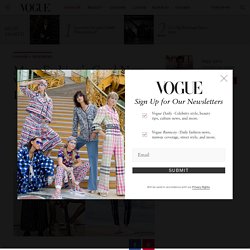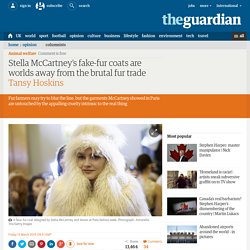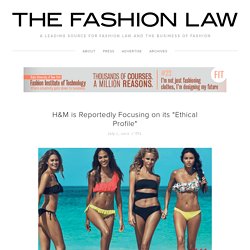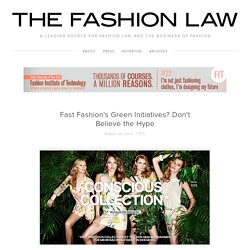

Luxury fashion embraces 'ethical values' and 'sustainability' Few things can bring on dismissive eye-rolling in a sophisticated consumer like a luxury-goods giant talking about social responsibility and sustainable production.

Inevitably, suspicions of ‘greenwashing’ and token gestures are quick to surface. Yet something of substance does seem to be happening. At one end of the spectrum, luxury powerhouses such as the Kering group, LVMH, Burberry and Hermès are beginning to integrate sustainability strategies into the mechanics of their businesses; and at the other, a clutch of innovative brands is emerging that has successfully fused ethical values with smart design.
As our demands for transparency increase, sustainability – what used to be seen as a dry, technical issue involving complex studies of biodiversity and supply chains – is even becoming sexy. That investment purchase could now be a positive acquisition that safeguards the environment rather than destroys it. Daveu knows there are no quick fixes. Ethics: in fashion? Sustainable Chic Fashion Labels to Know Now. Another year, another Earth Day, and more signs that the fashion industry is evolving toward greener practices and products.

Many of the latest wave of sustainably minded designers, however, are shifting their focus away from strictly organic materials (which tend to be basic) in favor of a more holistic approach that takes into account the entire life cycle of a piece of clothing, from its carbon footprint to the livelihood of the workers who made it. “Organic materials are the building blocks of a healthy garment, but I think today’s designers feel a responsibility to create fully positive designs in every part of the process,” says Jasmine Aarons, creative director of the South America–focused ethical line Voz. Whether that means emphasizing timeless design, utilizing small-scale and local production, or collaborating with artisan cooperatives in the developing world, these emerging labels manage to both look good and do good.
See more photos of: Read Caption Behno behno.com Voz Osei-Duro. Stella McCartney’s fake-fur coats are worlds away from the brutal fur trade. In an industry where designers rarely take an admirable position on anything, Stella McCartney’s opposition to animal cruelty has been consistent and vocal.

So it was a surprise for the fashion press when she sent voluminous fake-fur coats down the runway at Paris fashion week. Of her decision, McCartney said: “I’ve been speaking to younger women about it recently and they don’t even want real fur. So I feel like maybe things have moved on …” Something similar previously happened with food. In the freezer cabinets at the supermarket you’ll likely find the fake-meat products championed by McCartney’s mother, Linda. It would be a stretch to argue that fake meat fuels the meat market when it actually takes people away from animal produce by providing a viable alternative convenience food.
Fur farms involve 75 million animals kept in tiny cages, many of which become infected with disease, suffer horrific injuries and go mad from grief and stress. This should also apply to what we wear. H&M is Reportedly Focusing on its "Ethical Profile" — The Fashion Law. Courtesy of Reuters Swedish fashion company Hennes & Mauritz is reportedly focusing on its ethical profile to drive long-term sales growth as shoppers become more interested in how clothes are produced as well as their environmental impact, its new sustainability chief said.

The fashion industry has come under increasing pressure to cut water use and pesticides in cotton farming, reduce pollution from textile factories and improve factory conditions, particularly after the collapse of the Rana Plaza complex in Bangladesh two years ago. Opinion is split on whether companies are doing enough. While worker rights group Clean Clothes Campaign has accused H&M of using the sustainability issue as a marketing ploy, Corporate Knights magazine declared it to be among the world's most sustainable companies. Anna Gedda, H&M's head of sustainability, is determined the latter view will prevail.
Others are less skeptical. Fast Fashion's Green Initiatives? Don't Believe the Hype — The Fashion Law. H&M has is launching a new effort to promote recycling as it seeks to cut its environmental impact, boost its ethical credentials and address looming shortages of raw materials.

The move by the Swedish fast fashion giant, which is the world's second-biggest fashion retailer, sounds pretty good. According to Reuters, the brand’s new initiative comes as critics point out the damage being caused by a throwaway culture fuelled by cheap clothing that has seen a sharp rise in the number of garments sold annually around the world. But before we get ahead of ourselves, we have seen this before, and its called “greenwashing.” As you likely know by now (or at least I hope you do), fast fashion is a dirty industry – second only to the oil industry, according to recent reports. In order to keep costs low, fast fashion suppliers and even the retailers themselves operate in ethically questionable ways.